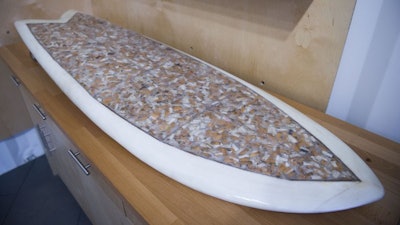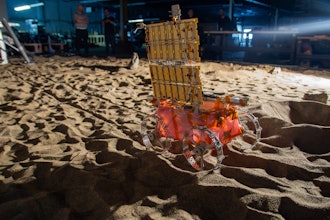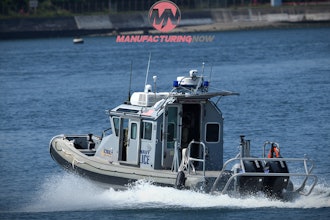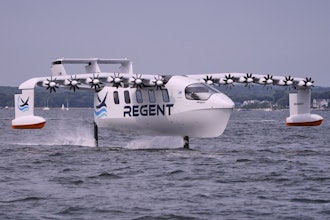
SAN JUAN CAPISTRANO, Calif. (AP) — A California surfer has won a recycled surfboard contest with an entry covered with 10,000 cigarette butts.
“This is the most polluted item picked up on the beach,” creator Taylor Lane told the Orange County Register. “And no one thinks twice that you can do anything with it.”
Lane, 24, from Santa Cruz had the top entry amid an assortment of boards made from potato sacks, used packaging and stuff picked up from Dumpster dives. An Australian entry was made from an old bathroom door.
The entries were for the third annual “Creators & Innovators Upcycle Contest,” hosted by the Vissla surfing gear brand and the nonprofit Surfrider Foundation.
A dozen entries were displayed last Friday at the Ecology Center in San Juan Capistrano.
“Who would have thought cigarette butts would have been beautiful?” said visitor Karyn Buky of Rancho Santa Margarita, California. “It gives you an awkward feeling, that something so pretty is so icky at the same time. It’s amazing.”
Lane and his friend, Ben Judkins, spent the summer plucking butts from the sand, beach parking lots and local paths in Santa Cruz. The board also uses Styrofoam from fish markets.
“It’s visually disgusting — but awesome in how gross it is,” Judkins said. “It just ties together surfing and something we care about — the environment, the ocean and the health of the ocean.”
Contestants had three months to make their surfboards.
Last year’s winner, Francois Jaubert of France, came in second with a board made with wood from a box that once held carrots. His entry last year was made from scrounged cardboard.
“I did this with garbage. We can have a little bit of thinking, a little bit of creativity,” Jaubert said. “And it’s way more fun to give a new life to a dead material. This used to hold carrots. Now, it’s surfing.”
“We should be smart enough to use what society gives us for free,” he said.
Vissla founder Paul Naude said the contest was designed to encourage creative thinking about sustainability. “This new culture is asking questions today. What are we doing to the environment?” Naude said.






















